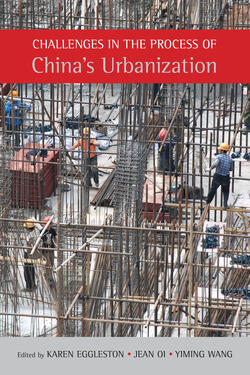Challenges in the Process of China’s Urbanization
Challenges in the Process of China’s Urbanization

The same institutions that enabled China’s massive urbanization and spurred its economic growth now require further reform and innovation.
To address the issues facing the next phase of the nation’s transformation, the National New Urbanization Plan (2014–20) set ambitious targets for sustainable, human-centered, and environmentally friendly urbanization. This volume explores the key institutional and governance challenges China will face in reaching those goals. Its policy-focused contributions from leading social scientists in the United States and China explore aspects of urbanization ranging from migration and labor markets to agglomeration economies, land finance, affordable housing, and education policy. Subjects covered in the eleven chapters include:
- Institutional problems leading to fiscal pressures on local governments and unequal provision of social services to migrant families
- The history of land financing and threats to its sustainability
- The difficulty of sorting out property rights in rural China
- How administrative redistricting has allowed the urbanization of geographical administrative places to outpace the urbanization of populations within those areas
- How the hukou system may not be the sole, or even primary, mechanism restricting migrants from public goods, such as their childrens’ education
- Whether the nation’s food security is threatened by its ongoing urbanization
- The current state of the provision of low-income housing, and future challenges
Examination copies: Shorenstein APARC books are distributed by Stanford University Press. You can obtain information on obtaining an examination copy at their website.
